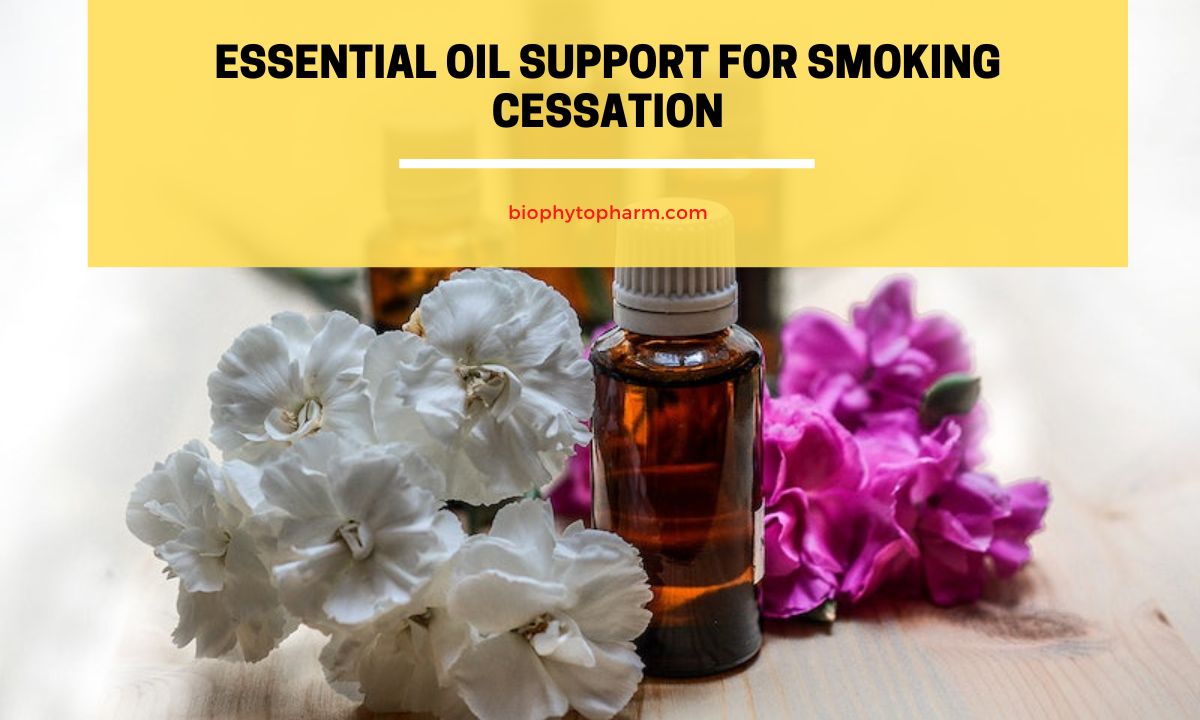Essential Oil Support for Smoking Cessation
Addiction to nicotine is commonplace in our society, for which we have a variety of reasons. Cigarette smoking is thought by smokers to reduce stress; it provides a reason for a break and gives the chemical compounds the body learns to depend on.
Looking at addiction through the lens of humanity, the use and abuse of substances do more than what we might think. As a communal animal, human beings depend on one another for support, companionship, shared work, ritual, and so many other interconnected needs. This culture of the connection supports coping, the actualization of one’s capabilities, as well as service to others.
Now, with the sheer volume of expectations placed upon individuals, compounded by the speed at which we operate, daily life itself can be overwhelming. For many of us, the stress derives from our efforts to acquire food and shelter and to build belonging.
Work, family, and internal anxieties become the baseline to which other life stressors are added. Addictions offer a chemical release from the aggregate anxieties of life and deaden feelings of isolation from the other people who, once upon a time, were a regular part of keeping us connected, accountable, and devoted.
Because of the breadth of impact of an addiction, it can be very hard to confront. Essential oils can support the process of breaking the smoking habit. To free yourself from an addiction to smoking, it is also necessary to weave more social support and self-care into the tapestry of your life.
Essential Oil Research
InClinical Aromatherapy: Essential Oils in Practice, Jane Buckle identifies three essential oils that have the following effects: reducing cravings, simulating the respiratory sensations of smoking, and calming the anxiety of cravings.
In a clinical trial that tested the efficacy of essential oils at curbing cravings, clinicians offered Angelica essential oil just after meals, at the time of the most intense cravings. The baseline time participants could wait before smoking was 2 minutes. The group who inhaledAngelica archangelica essential oil could wait53 minutes, about 25 times longer than those without treatment.
Quoted in the same book, Rose and Behm (1994) suggest that effectively quitting helps mimic the respiratory sensation of smoking. Black Pepper essential oil provides that sensation, thus making it easier to resist cravings.
Another test was conducted with a sample of women who were recovering from other addictions. The women slept for 7 nights with a few drops of Ylang Ylangessential oil on a cotton square in their pillowcases every night. During the day, they were asked to inhale a few drops from a cotton square if they experienced cravings.
The women in the experimental Ylang Ylang group experienced an overall reduction of the number of cravings, to the control group, who inhaled Almond Oil. 4 out of 5 of the women in the Ylang Ylang group reported that “smelling the oil relieved the stress and anxiety of that moment.”
In order to nurture oneself through the period of transition, the traditional methods of adequate rest, supportive nutrition, and enough water will help the body repair itself. In addition, taking time to relax in nature, to connect with loved ones and friends, and do the things you love will also create in you the connection and nourishment that cigarettes used to.
Smoking and Essential Oils
Smoking is a harmful habit that is very difficult to quit. The addictive nature of nicotine can make it a real challenge for smokers to quit. While nicotine replacement therapies like gum or patches can help, they may not be enough for some individuals. Fortunately, there are natural remedies that can help smokers overcome their addiction, and essential oils are one such remedy.
Essential oils are highly concentrated plant extracts that have been used for centuries for their therapeutic benefits. They can be used in a variety of ways, including inhalation, topical application, and ingestion. In this article, we will discuss how essential oils can support smoking cessation.
- Manage Cravings One of the biggest challenges of quitting smoking is dealing with cravings. These cravings can be intense and difficult to ignore, which can cause smokers to relapse. Essential oils can help manage these cravings. Some essential oils like black pepper, clary sage, and cinnamon can help curb cravings and reduce the urge to smoke.
- Reduce Stress Stress is another factor that can lead to smoking. When smokers feel stressed, they often turn to cigarettes as a way to cope. Essential oils can help reduce stress and anxiety, which can help smokers avoid the urge to smoke. Oils like lavender, chamomile, and ylang-ylang can help soothe the mind and promote relaxation.
- Improve Mood Smoking can often be a way for individuals to self-medicate for depression or anxiety. Essential oils can help improve mood, which can reduce the need for smoking. Oils like bergamot, lemon, and peppermint can help uplift the mood and promote a sense of well-being.
- Detoxify the Body Smoking introduces harmful toxins into the body, and quitting smoking can be a challenge for the body to detoxify. Essential oils can help support the body’s natural detoxification process, which can reduce withdrawal symptoms and support overall health. Oils like lemon, grapefruit, and juniper can help detoxify the body and support the liver.
- Boost Immune Function Smoking weakens the immune system, making smokers more susceptible to illnesses. Essential oils can help support the immune system, which can reduce the risk of illness and support overall health. Oils like tea tree, oregano, and eucalyptus can help boost the immune system and provide protection against pathogens.
How to Use Essential Oils for Smoking Cessation There are several ways to use essential oils to support smoking cessation. Here are some methods to try:
- Inhalation Inhaling essential oils can help manage cravings and reduce stress. Add a few drops of essential oil to a diffuser, or inhale the oil directly from the bottle.
- Topical Application Topical application of essential oils can help detoxify the body and reduce withdrawal symptoms. Mix a few drops of essential oil with a carrier oil like coconut oil, and massage onto the skin.
- Ingestion Ingesting essential oils can help support the immune system and improve overall health. However, it’s important to use caution when ingesting essential oils, as they are highly concentrated and can be toxic if ingested improperly. Consult with a qualified aromatherapist or healthcare practitioner before ingesting essential oils.
Conclusion Smoking cessation is a difficult process, but essential oils can provide natural support and help ease the transition. Essential oils can help manage cravings, reduce stress, improve mood, detoxify the body, and boost immune function. However, it’s important to use caution when using essential oils and to consult with a qualified aromatherapist or healthcare practitioner before use. With the right support and tools, individuals can successfully quit smoking and improve their health and well-being.
Read More: Helichrysum







